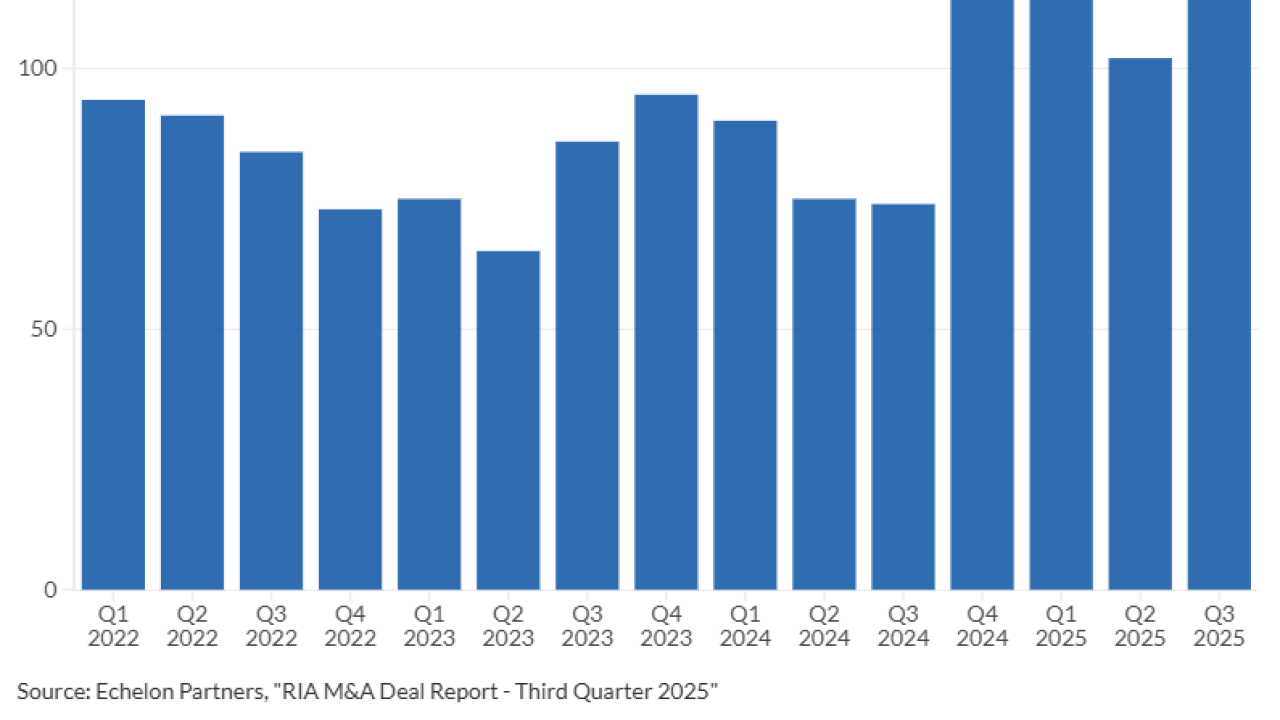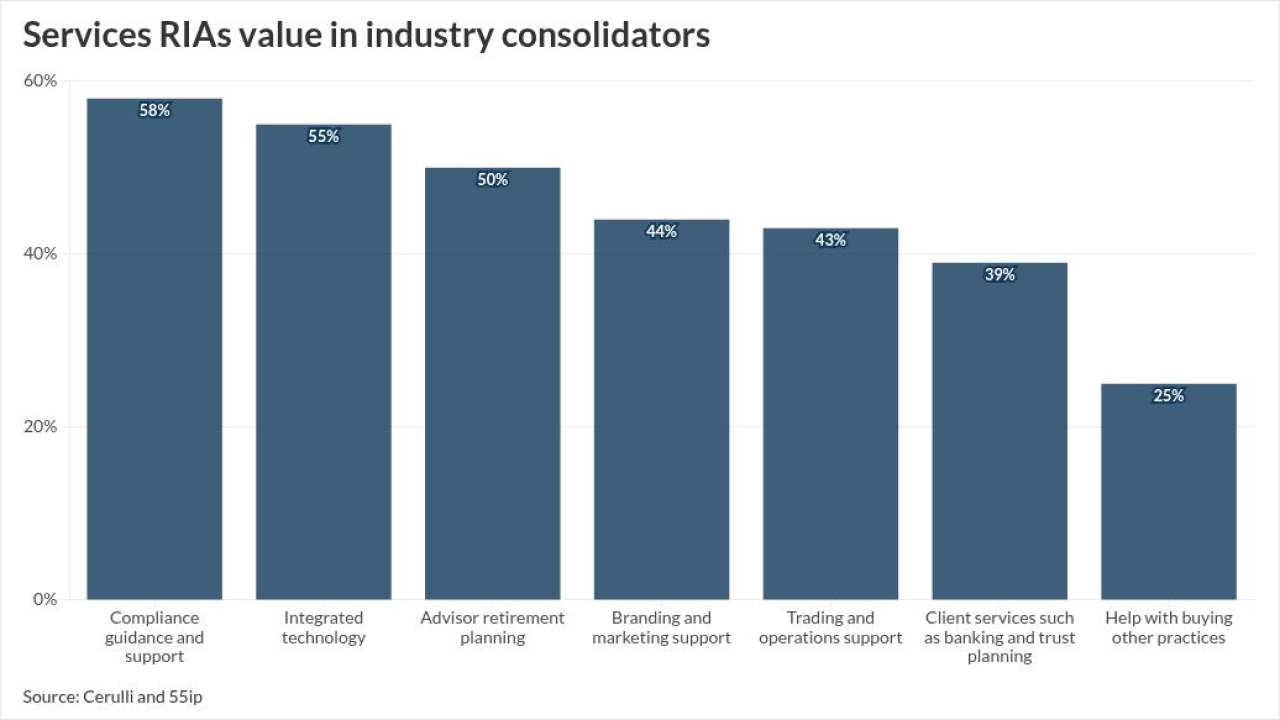Profits are falling and the advisor force is shrinking at Oppenheimer & Co., a brokerage firm with a reputation for giving troubled advisors a second chance but which has fallen under intense regulatory scrutiny in recent years.
The New York firm said profits for its private client group plummeted 40% year-over-year, falling to $14 million for the quarter from $23 million for the same period a year ago. The firm blamed the slump on lower transaction-based revenue and higher legal and regulatory costs.
Meanwhile, advisors have been jumping ship from Oppenheimer; headcount at the brokerage firm fell to 1,233 for the fourth quarter, a decline of 91 from the year-ago period. Oppenheimer attributed the drop to the company's "ongoing review of financial advisor productivity, compliance, and client service," according to its earnings report.
However, the firm's advisor force has actually been shrinking for some time. Five years ago, Oppenheimer employed about 1,500 advisors. The departures at Oppenheimer appear to be picking up steam.
Recruiters say some advisors have been leaving due to the company's outdated technology and its legal and compliance troubles. "Their recruiting deal stinks," says a recruiter who asked not to be named.
This recruiter says that the firm used to be a home for advisors looking for a second chance after having some kind of non-criminal issue at their past firm.
"The big advantage for them was that you had a lot of flexibility. It was for people who didn't fit the mold. Now, I don't know," the recruiter says.
Oppenheimer's run-ins with regulators, who have hit the firm with millions in fines, are also a contributing factor to advisor departures and weak recruiting.
"Oppenheimer's recent history of bad press, which followed bad hires, and mediocre recruiting deals makes it hard for them to attract A players. That makes the A players that they have nervous," says recruiter Danny Sarch.
LITIGATION EXPENSES
The company is overseen by a Wall Street veteran, Albert G. Lowenthal, who has served as chairman and CEO for Oppenheimer and its predecessor firm Fahnestock & Co., since 1985. He has been working in the securities industry since 1967, according to the company's website.
In 2003, Fahnestock acquired Oppenheimer private client and asset management units from CIBC World Markets, and then renamed itself.
In recent years, Oppenheimer has fallen under the scrutiny of regulators for allegedly lax compliance procedures and broker misconduct. In early 2015, FINRA hit Oppenheimer with $3.75 million in fines for supervisory failures related to
And a year ago, Oppenheimer paid $20 million to the SEC and the Treasury Department’s Financial Crimes Enforcement Network for improperly selling penny stocks in unregistered offerings on behalf of customers. The company agreed to admit to wrongdoing in that case – and narrowly avoided tougher penalties in a closed-door vote by SEC commissioners. Separately, the SEC also barred and fined Robert Okin, a former head of Oppenheimer's Private Client Division.
Two commissioners, Luis A. Aguilar and Kara M. Stein, dissented from their colleagues and sharply criticized Oppenheimer's operations.
Referring to recent regulatory violations by Oppenheimer, Commissioners Aguilar and Stein said in a dissenting letter dated a year ago that that these "are just the most recent chapter in a long and unfortunate history of regulatory failures, some more significant than others, but cumulatively indicative of a wholly failed compliance culture."
FUTURE CHALLENGES
Beyond its past regulatory problems, Oppenheimer still faces hurdles.
Client assets under administration for the company's private client group dropped 10% to $79 billion for the quarter, partially due to recent market turmoil.
Profits have also been on a downward trajectory in recent years. Companywide, annual profits dropped 77% year-over-year to $1.9 million from $8.8 million for last year. In 2013, the company reported $25 million in profits.
The company's stock was trading at just under $15 a share on Feb. 4, down from a high of $28 a share in June of last year. Ten years ago Oppenheimer stock was trading at about $21 a share.
Following his company's most recent earnings report, CEO Lowenthal said in a statement that Oppenheimer's technology investments would give it a more competitive platform to meet client and regulatory needs.
"The company and its management recognize the importance of effective supervision, appropriate systems and controls, and an ethical culture to ensure success in today's competitive environment," Lowenthal said.
Through a spokeswoman, the company did not respond to requests for comment.
Read more:





